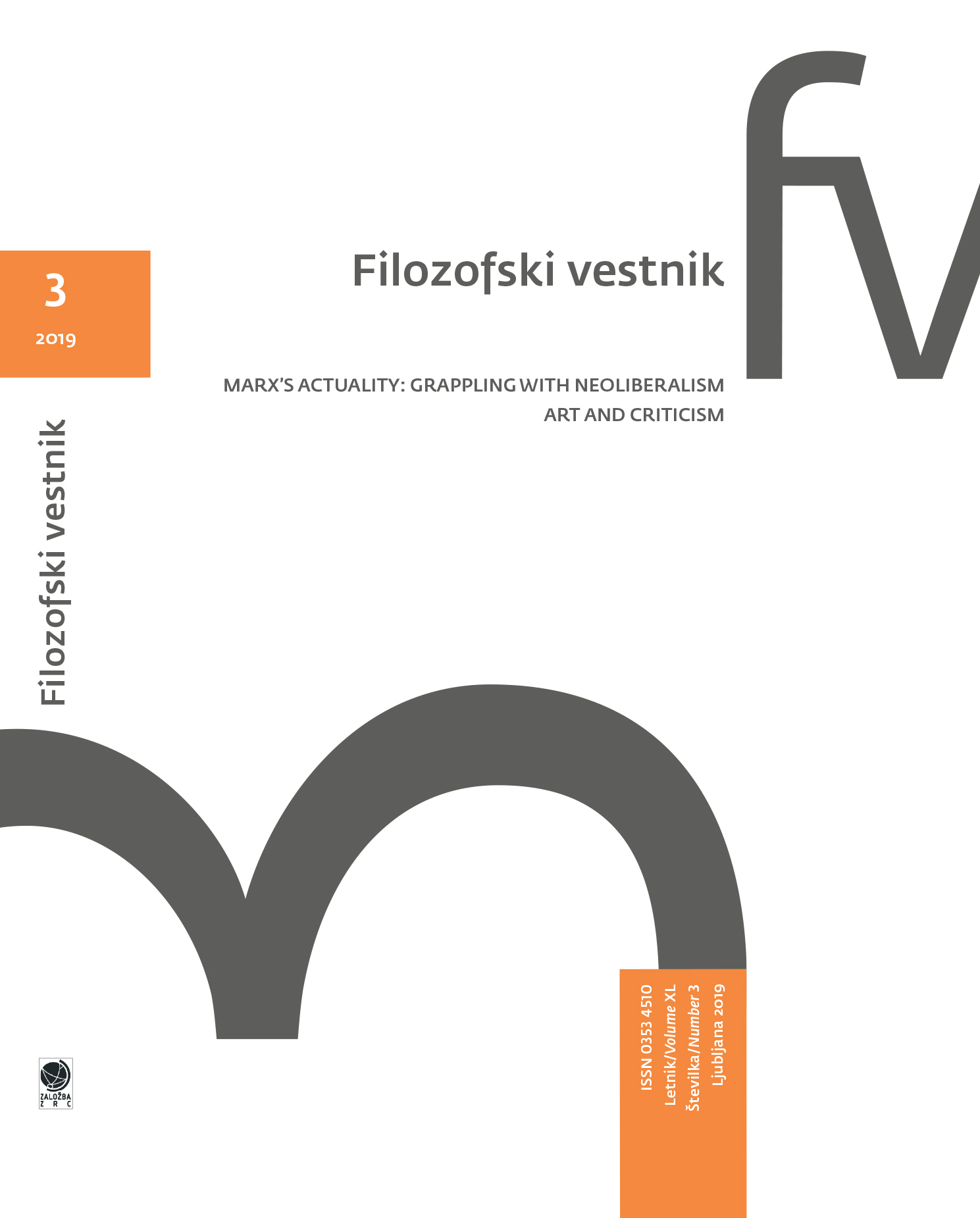Towards an Object-oriented Critique of Political Economy
Keywords:
objectification, Marx, value form, class struggle, correlationismAbstract
In the article I investigate the role of objects in Marx’s critical theory. I focus on the way in which Marx’s understanding of objects evolves from his earlier works towards his later works. In the first part I analyse the general theory of objectification developed by Marx in the Economic and Philosophic Manuscripts of 1844 and in the Theses on Feuerbach. In the second part I focus on Grundrisse and Capital, where I believe Marx comprehends capital as a specific mode of social objectification. In the last part I analyse the distinction between the object of Marx’s scientific discourse and the object of his critical discourse. I argue that Marx’s theory of objectification is possible only from the position of class struggle, which is a position in the social structure that cannot be objectified. I claim this is the reason why Marx’s critical theory allows one to think the moment of contingency in what seems to be the deterministic structure of the capitalist mode of production.
Downloads
Downloads
Published
How to Cite
Issue
Section
License
Authors guarantee that the work is their own original creation and does not infringe any statutory or common-law copyright or any proprietary right of any third party. In case of claims by third parties, authors commit their self to defend the interests of the publisher, and shall cover any potential costs.
More in: Submission chapter





